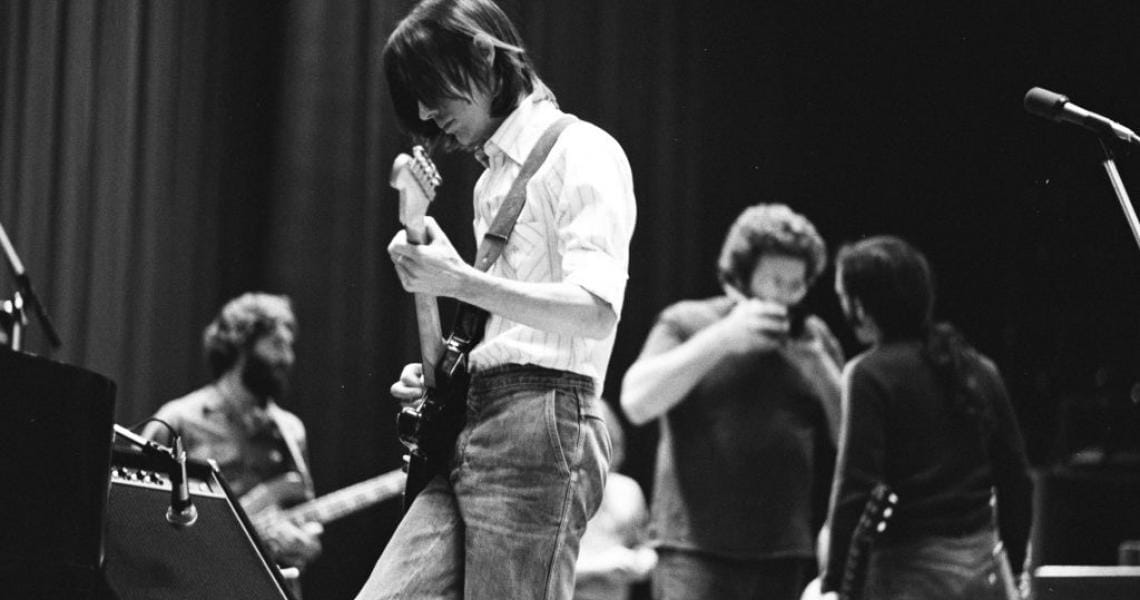From the Archive: On Jackson Browne's 'Running on Empty'
A 2021 piece I'm quite proud of, from a site I almost forgot I edited.

Sometimes, as a writer, you work on things and then promptly forget about them. I had a writing/editing gig awhile back that was kind of like that. None of the work bears my name; the sites I wrote for didn't even have a date system visible to users, so you couldn't say something happened on this day in 1978, because nobody would know what "this day" even was.
But there's one piece from that time I go back to a lot, so I'm republishing it here. Running on Empty might be one of my 100 favorite albums of all time - I've never really counted - a record I feel in my bones when I listen to it. As you'll discover, this piece was also written in a very specific timeframe - a time when things seemed like they might be getting better after a time where they'd gotten worse, but nobody really knew yet. (Maybe we still don't.) I can't always bother myself with whether or not things I write make people feel something...but just this once, I hope it did.
Running on Empty Shifted Jackson Browne Into High Gear
It takes awhile for your ears to acclimate to what you're hearing when you drop the needle on Jackson Browne's Running on Empty. It's just the droning roar of people, a crowd - something that, in the year and a half the world has been living with COVID-19, isn't as common as it used to be. Then, like a rocket, Browne and his band kick into high gear with the title track. Browne, whose golden voice was, at the time, a staple of rock radio waves for a decade, sings with clarity and conviction:
Looking out at the road rushing under my wheels
Looking back at the years gone by like so many summer fields
'65, I was 17 and running up 101
I don't know where I'm running now, I'm just running on
It's as classic as his type of rock and roll gets: instantly relatable, meshing the everlasting promise of youth with the vaguer realities of adulthood, hurtling toward a future that has no guarantees.
Running on Empty is not a typical live album. None of the songs took hold on other LPs beforehand. Not all of them were recorded in concert. Some, yes - including album bookends from a rousing show at the Merriweather Post Pavilion in Columbia, MD on Aug. 27, 1977 - but others were taped in spacious rehearsals, behind the thin walls of motel rooms, and even on a tour bus somewhere down the highways of New Jersey.
But its polish is considerable; for that, you can thank the all-star band backing him up, including session legends like guitarists Danny Kortchmar and David Lindley, keyboardist Craig Doerge, bassist Leland Sklar and drummer Russ Kunkel. (They were the de facto house band for Browne's label Asylum, playing on albums for Linda Ronstadt and Warren Zevon as well as Carole King's Tapestry and James Taylor's Sweet Baby James.) Moreover, it's a live document that transcends its typical mission - a souvenir of what it was like to see the singer-songwriter in concert - and becomes a heartfelt commentary of life on the road.
Second track "The Road" offers a powerful confessional to the mundanity of a touring artist's life, spliced brilliantly between a close-quarters version in a motel room and a version in front of a crowd. "Rosie" is a forlorn song about a girl with a backstage pass - told with none of the salaciousness you might expect of such a tune in the '70s, with weary harmonies supplied by Browne's tour photographer. Some songs sound like they could fit into any of Browne's studio LPs of powerful Everyman observations ("You Love the Thunder," "Love Needs a Heart"). Others - a cover of J.J. Cale's "Cocaine," the original "Nothing But Time" featuring a bus' shifting gears and Kunkel's box-tapped percussion - are one-of-a-kind sparks that could only happen here.
The album's penultimate tune, "The Load-Out," is a real gut-punch: over his piano and Lindley's lap steel, Browne sings a tender tune about the people and scenes that make such a tour possible - opening a window to the audience about what goes on when the lights come up and everyone heads out of the parking lot and into the night. More than 40 years later - long after the album spent nearly a year on the Billboard album charts, outsold all of Browne's other albums and picked up a Grammy Award nomination for Album of the Year - it hits just as hard, in a year marred by illness, death, financial hardships, uncertainty and the wish that, just for a minute, things could go back to something approaching normal and we could go back to enjoying concerts like the ones we hear here.
Then, just as the emotions reach their peak and the song seems ready to come to an emotional end, Browne and the band have one more trick up their sleeves: a cheeky cover of Maurice Williams and The Zodiacs' "Stay," rewritten to reflect the thrill of chasing "one more song." Rosemary Butler's soaring co-lead vocals - and Lindley's falsetto, Frankie Valli-esque last chorus - bring the listeners and the players together in one, brilliant truth: the show doesn't ever have to end, and the needle never has to leave the record.
May it always be so.
